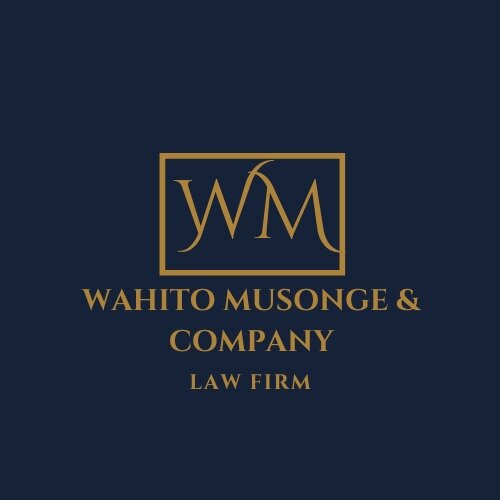Best Toxic Mold Lawyers in Nairobi
Share your needs with us, get contacted by law firms.
Free. Takes 2 min.
List of the best lawyers in Nairobi, Kenya
About Toxic Mold Law in Nairobi, Kenya
Toxic mold is a serious health concern. It is classified under the Environmental Management and Coordination Act (EMCA) in Kenya. This act promotes and provides procedures for environmental management, including mold remediation due to the health hazards they pose. There is no specific law under Kenyan legislation surrounding the topic of toxic mold. However, property owners, tenants, and employers may face legal implications if they knowingly allow for conditions encouraging mold growth or do not address the presence of mold promptly.
Why You May Need a Lawyer
If you're suffering from health issues caused by exposure to toxic mold in your rented property or workplace, a lawyer can help you understand your rights and the options available for seeking damages or enforcement of repair obligations. Lawyers can also aid landlords and business owners who are wrongly accused of neglecting their duties.
Local Laws Overview
The Public Health Act dictates that landlords have to provide a safe and habitable environment for their tenants, including preventing toxic mold exposure. The Occupational Safety and Health Act also provides that employers ensure the health and safety of their employees, including maintaining wholesome work environments free of harmful substances like toxic mold.
Frequently Asked Questions
What is toxic mold?
Toxic mold refers to several types of mold that produce mycotoxins harmful to humans. Exposure to these molds can lead to health concerns.
Can I sue my landlord for toxic mold exposure?
Even though there's no specific legislation for mold in Kenya, you may be able to sue your landlord through the Public Health Act if their negligence led to mold growth causing health issues.
How do I prove that health issues are due to toxic mold?
Documenting your health issues, the presence of mold, and any communication with the responsible party can strengthen your case. A medical evaluation linking your health issues to mold exposure is also beneficial.
Who is responsible for mold removal?
Landlords are typically responsible for remedying conditions leading to mold growth and handling mold removal in most cases.
What precautions should employers take regarding toxic mold?
Employers should adhere to the Occupational Safety and Health Act by ensuring workplaces are clean, dry, and free of leaks that could promote mold growth.
Additional Resources
The National Environment Management Authority (NEMA) is Kenya's key government body overseeing environmental management. For issues relating to public health, the Ministry of Health may provide additional resources. Always remember to consult with legal professionals for advice specific to your situation.
Next Steps
If you're dealing with the presence of toxic mold, it's essential to consult with legal professionals who understand local laws and can navigate them efficiently. Collect and document any evidence related to your case, ensure you're receiving the appropriate medical attention, and then seek legal guidance.
Lawzana helps you find the best lawyers and law firms in Nairobi through a curated and pre-screened list of qualified legal professionals. Our platform offers rankings and detailed profiles of attorneys and law firms, allowing you to compare based on practice areas, including Toxic Mold, experience, and client feedback.
Each profile includes a description of the firm's areas of practice, client reviews, team members and partners, year of establishment, spoken languages, office locations, contact information, social media presence, and any published articles or resources. Most firms on our platform speak English and are experienced in both local and international legal matters.
Get a quote from top-rated law firms in Nairobi, Kenya — quickly, securely, and without unnecessary hassle.
Disclaimer:
The information provided on this page is for general informational purposes only and does not constitute legal advice. While we strive to ensure the accuracy and relevance of the content, legal information may change over time, and interpretations of the law can vary. You should always consult with a qualified legal professional for advice specific to your situation.
We disclaim all liability for actions taken or not taken based on the content of this page. If you believe any information is incorrect or outdated, please contact us, and we will review and update it where appropriate.









